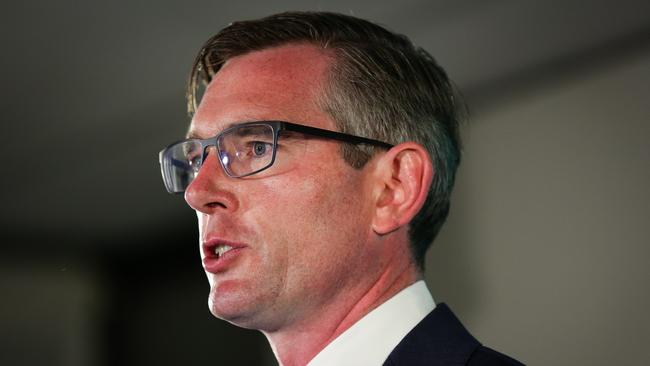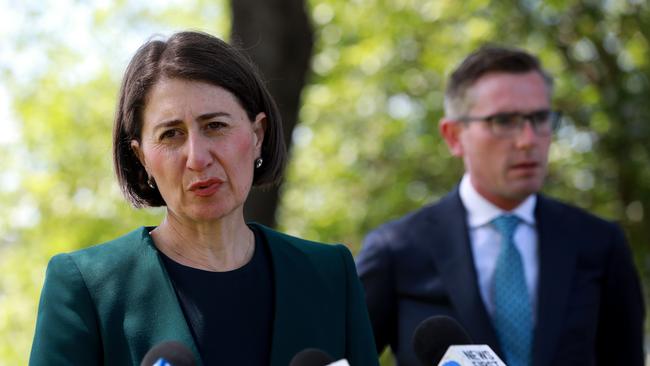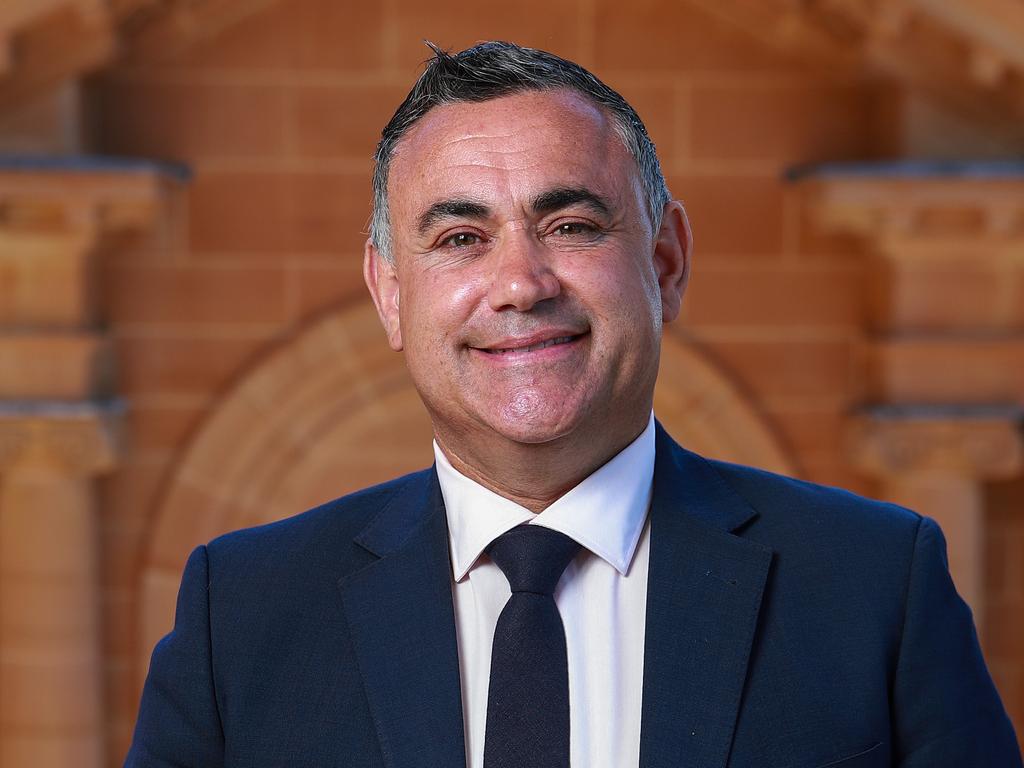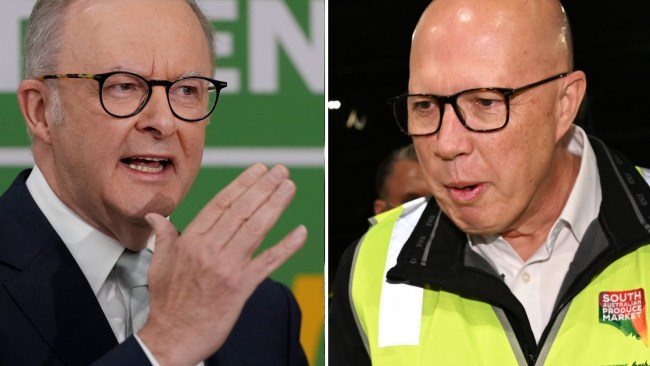NSW budget: Stamp duty to go as NSW debt to soar to record $104bn amid COVID-19 pandemic
The NSW budget will be plunged into an unprecedented deficit and historic levels of debt as it finances an economic recovery and return to surplus by 2025.

The NSW budget will be plunged into an unprecedented deficit and historic levels of debt as it finances an economic recovery and return to surplus by 2025, with Treasurer Dominic Perrottet also flagging the replacement of the state’s stamp duty as part of major taxation reforms.
Combining catastrophic projections in the short term with optimistic forecasts for the long term, Mr Perrottet said the economy would emerge more resilient from the pandemic, which continues to cost $400m each week and will drain $25bn from revenue sources over the forward estimates.
Describing its purpose as both “recovery and reform”, Mr Perrottet said he would move to make stamp duty optional and home ownership more achievable — although he did not say when the policy would start.
Terming it “the worst” of all taxes, the Treasurer released a proposal floating an opt-in charge that could see stamp duty either paid or replaced with an annual land tax.
He said discussions about the policy would continue until March, when a final decision was due to be made.

NSW Labor criticised the announcement, saying discussions around stamp duty reform had been a decade in the making and there was no need to engage in further consultation.
The story of the budget, at times wretched in its outlook, is best told through its raw numbers: unemployment will peak at 7.5 per cent by December before easing to 5.25 per cent by mid-2024; net debt will rise to $53bn by the middle of next year; it will reach $104bn by 2024.
Mr Perrottet said these debts — locked in at historically cheap borrowing rates — would fund capital works, a slew of stimulus measures, payroll tax relief, and other mechanisms to help businesses retain employees.
Curbing unemployment, he said, was the spiritual centre of the budget’s purpose.
“Our stimulus will be unprecedented in scale and quality,” Mr Perrottet said. “But make no mistake: public spending is not a permanent solution.”
Compared with the rest of the country, NSW’s forecast net debt of $104bn over the forward estimates is approximate with Queensland’s forecast gross debt of $60.9 billion, which it will hit by June next year.
South Australia’s budget, released a week ago, is forecasting net debt to hit $33.2bn over its forward estimates, while Victoria’s is expected to balloon well beyond¬ the $44.3bn reached last financial year.
Among the notable spending items in the NSW budget is a $500m voucher scheme that will give every adult in the state $100 to spend on restaurant meals and recreational activities. Payroll tax thresholds will be increased from $1m to $1.2m, while the tax itself will be reduced for two years, from 5.45 per cent to 4.85 per cent, the lowest in the nation.
Small businesses will be handed digital vouchers worth $1500 to help pay for government fees and charges, projected to cost the state a further $500m, while a pandemic policy that provided 15 hours of free preschool will be extended to the end of next year.
Additional sweeteners include funding for more than 100 mental health professionals for schools, and intensive tutoring sessions for students who were impacted by closures and other pandemic-induced disruptions.
The drain on revenue means the budget deficit will climb to $15.9bn in 2020-21, before a sharp turnaround has that fall to $2bn the following year. It will then taper off to a deficit of $460m by June 2024 before officials expect a return to surplus.
The total amount spent combating the economic consequences of the pandemic — $29bn — has ended up dwarfing the $8.9bn spent to support drought and bushfire-affected regions.
To pay off the high level of borrowing, Mr Perrottet said the government would use its sovereign wealth vehicle, the NSW Generations Fund, which is currently earning 4.5 per cent interest and is on track to be valued at $70bn by 2030.
Assets including a 49 per cent stake in the WestConnex motorway, along with the proceeds of coalmining royalties, are likely to be channelled into the fund to accelerate its growth further.
A scoping study next year will examine the possibility of selling the duty revenue stream accrued by NSW Lotteries.
PwC chief economist Jeremy Thorpe said borrowing heavily and cheaply was sensible in this “extraordinary recessionary environment”.
“Getting the budget back to surplus by 2024-25 will be challenging but is a sensible goal that stresses the need for a return to normality without locking in higher expenditures that future generations will have to bear,” Mr Thorpe said on Tuesday.
But critics of the budget said cost-saving measures, including a cap on public sector pay increases, were unethical and “economically irresponsible”. “The best and fairest form of pandemic economic stimulus would be to give the modestly paid public servants working for NSW a reward for their extraordinary efforts this year,” said Public Service Association secretary Stewart Little.







To join the conversation, please log in. Don't have an account? Register
Join the conversation, you are commenting as Logout